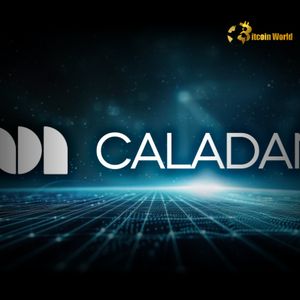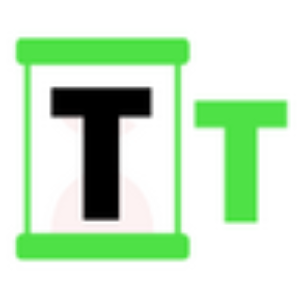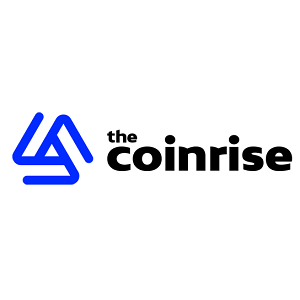U.S. Crypto Regulation: Caladan Makes Bold Move with New York Expansion
5 min read
BitcoinWorld U.S. Crypto Regulation: Caladan Makes Bold Move with New York Expansion The world of digital assets is constantly evolving, and major players are strategically positioning themselves for future growth. A significant recent development that highlights this trend is Singapore-based crypto trading firm Caladan’s decision to open a new office in New York. This isn’t just a simple expansion; it’s a calculated move deeply tied to the intricate landscape of U.S. crypto regulation and the firm’s ambitious plans within the world’s largest economy. Why is a Crypto Broker-Dealer License So Crucial in the U.S.? Operating within the regulated financial markets of the United States requires specific licenses, especially when dealing with securities or certain types of financial instruments. For firms looking to serve institutional clients and facilitate trading in digital assets that may be deemed securities, obtaining a crypto broker-dealer registration is paramount. This license allows firms to buy and sell securities on behalf of their clients or themselves, under strict regulatory oversight. Access to Institutional Clients: Many large institutional investors (like hedge funds, asset managers, and pension funds) are mandated to work only with regulated entities. A broker-dealer license opens the door to this massive pool of capital. Regulatory Compliance: It signals a commitment to adhering to U.S. financial laws and regulations, building trust and legitimacy. Expanded Service Offerings: With the license, firms can potentially offer a wider range of services, including trading execution, prime brokerage, and potentially even underwriting or distributing digital asset securities. Caladan’s pursuit of this registration indicates a clear focus on tapping into the institutional market in the U.S., which is often seen as the next major wave of adoption for digital assets. Navigating the Path to FINRA Membership : Caladan’s Strategy Alongside broker-dealer registration, membership with the Financial Industry Regulatory Authority (FINRA) is typically required for firms conducting securities business in the U.S. FINRA is a non-governmental organization that regulates member brokerage firms and exchange markets. Gaining FINRA membership involves a rigorous application process, demonstrating compliance with extensive rules regarding capital requirements, operational procedures, and personnel qualifications. Caladan is tackling this challenge head-on with a dedicated strategy: The establishment of a New York office serves as a physical hub for their U.S. operations and regulatory efforts. Locating in a major financial center like New York provides access to talent and proximity to regulatory bodies. The firm plans to allocate a significant portion of its workforce, at least 5%, specifically to its U.S. operations. This commitment of resources underscores the importance of the U.S. market to their global strategy. A specialized team, led by Gian-Paul Caccia, has been appointed. This team is tasked with two critical functions: building institutional partnerships within the U.S. market and ensuring robust compliance with the complex U.S. regulatory framework. This dual focus is essential for both market penetration and sustainable operation. Connecting Global Markets: How Institutional Crypto Bridges Asia and the U.S. Caladan’s move isn’t happening in a vacuum. It’s part of a larger global trend seeing established financial players and dedicated crypto firms building bridges between different markets. Caladan, with its roots in Singapore, a major Asian financial and crypto hub, is strategically positioned to connect the robust crypto infrastructure that has developed in Asia with the burgeoning, albeit sometimes hesitant, interest from U.S. institutions. The firm explicitly states this broader strategy: to link Asia’s established crypto ecosystem with renewed U.S. institutional interest. This involves leveraging their expertise and network in Asia to provide U.S. institutions with access to liquidity, trading opportunities, and potentially novel digital asset products. The increasing demand for institutional crypto services requires global connectivity and reliable, regulated pathways for large-scale investment. Contextualizing the Move: U.S. Policy Shifts and the Trump Administration The article notes that Caladan’s move aligns with a ‘more crypto-friendly regulatory shift under the Trump administration’. It’s important to contextualize this statement. While regulatory outcomes are never guaranteed and can change, there has been speculation and discussion about potential shifts in approach depending on the political landscape. The previous Trump administration saw some varying views within its agencies regarding crypto, but also statements suggesting a desire for the U.S. to remain competitive in the global financial landscape, which includes digital assets. The current regulatory environment is complex, involving multiple agencies like the SEC, CFTC, and others. Firms like Caladan making significant investments in U.S. operations suggest a belief that the U.S. market will become more accessible and potentially more favorable for institutional crypto activities in the future, regardless of the specific administration. They are positioning themselves to capitalize on this potential shift and the anticipated growth in U.S. institutional adoption. Who is Caladan Crypto and What’s Next? While the original snippet focuses on the expansion, understanding a bit more about Caladan crypto provides context. As a Singapore-based trading firm, they operate within a different regulatory environment than the U.S. Their expertise likely lies in high-frequency trading, market making, and providing liquidity across various digital assets. Their decision to pursue U.S. broker-dealer registration signals a strategic pivot or expansion into providing regulated financial services specifically tailored for the U.S. institutional market. What’s next for Caladan? The immediate focus will be on navigating the complex regulatory approval processes for broker-dealer registration and FINRA membership. This can be a lengthy and challenging endeavor. Simultaneously, their U.S. team will be working to build relationships with potential institutional clients, educating them on digital assets and Caladan’s offerings. Success will depend on their ability to secure the necessary licenses, build a strong compliant operation, and effectively market their services to U.S. institutions. Challenges and Opportunities While the opportunity in the U.S. market is vast, challenges remain significant. The regulatory landscape is still evolving, and interpretations can vary. Competition among firms vying for institutional crypto business is also intense. However, the potential rewards – access to the deepest capital markets in the world and positioning as a key player in global institutional crypto trading – make the effort worthwhile for firms like Caladan. Conclusion: A Strategic Bet on U.S. Institutional Crypto Caladan’s move to open a New York office and pursue U.S. broker-dealer and FINRA registrations is a powerful statement about the growing importance of the U.S. market for institutional crypto adoption. It reflects a strategic bet on the future trajectory of U.S. crypto regulation and the anticipated increase in demand from traditional financial players. By establishing a physical presence, dedicating resources, and building a compliance-focused team, Caladan is positioning itself to be a key bridge between the established Asian crypto markets and the vast potential of the U.S. institutional landscape. This development is a significant indicator of the ongoing maturation and globalization of the digital asset ecosystem. To learn more about the latest U.S. crypto regulation trends, explore our article on key developments shaping institutional crypto adoption. This post U.S. Crypto Regulation: Caladan Makes Bold Move with New York Expansion first appeared on BitcoinWorld and is written by Editorial Team

Source: Bitcoin World



